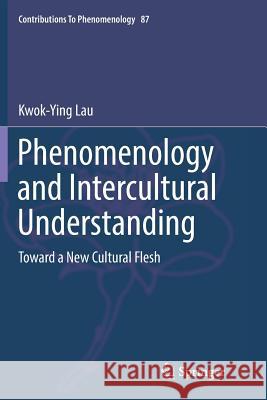Phenomenology and Intercultural Understanding: Toward a New Cultural Flesh » książka
topmenu
Phenomenology and Intercultural Understanding: Toward a New Cultural Flesh
ISBN-13: 9783319831305 / Angielski / Miękka / 2018 / 256 str.
Kategorie:
Kategorie BISAC:
Wydawca:
Springer
Seria wydawnicza:
Język:
Angielski
ISBN-13:
9783319831305
Rok wydania:
2018
Wydanie:
Softcover Repri
Ilość stron:
256
Waga:
0.38 kg
Wymiary:
23.39 x 15.6 x 1.45
Oprawa:
Miękka
Wolumenów:
01
Dodatkowe informacje:
Wydanie ilustrowane











